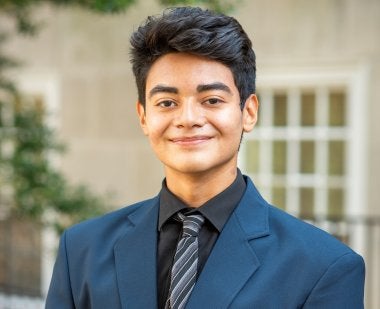

The Elementary Education, Bachelor of Science program is designed to give you the skills and knowledge needed to excel at teaching in the 21st century. Through a comprehensive curriculum, you will develop expertise in various subjects crucial for elementary education, including language arts, mathematics, science, and social studies.
Throughout the program, you will have the opportunity to gain hands-on experience through five field placements in local elementary schools. These experiences provide invaluable opportunities to apply classroom learning in real-world teaching contexts, under the guidance of experienced mentor teachers.
By focusing on elementary education, you will play a pivotal role in shaping the future of society. You have the opportunity to make a lasting impact on young minds during their most formative years, helping to cultivate a passion for learning and empowering them to reach their full potential.
The program leads to teacher licensure.
Key Features
- School Partnerships: Your five field placements in local elementary schools, include partnerships with top school districts such as Anne Arundel County Public Schools (AACPS), Howard County Public School System (HCPSS), Montgomery County Public Schools (MCPS), and Prince George's County Public Schools (PGCPS).
- Commitment to Social Justice: The program emphasizes education as a means of social justice. Anti-biased practices are embedded into each course, preparing you to promote inclusive and equitable learning environments.
- Year-Long Teaching Internship: Engage in a comprehensive, year-long teaching internship during your senior year, where you take on full responsibilities of a classroom teacher with the support of experienced mentors and university supervisors.
- In-depth knowledge of the subject matter you teach
- Effectively plan classroom based instruction
- Accurately assess, monitor, and analyze student learning, making appropriate adjustments
- Have a positive effect on learning for all students
- Can work with students, families, and communities in ways delineated in professional, state, and institutional standards
Admission into our Professional Teacher Education programs is selective. You must take the following steps to be considered:
- Step 1: Apply and be admitted to the University of Maryland
- Step 2: Attend a Major Exploration Workshop (UMD internal transfers only)
- Step 3: Meet with an Academic Advisor
- Step 4: Meet all selective admission requirements for your specific program of interest
- Step 5: Complete the Professional Application and submit Supplemental Application Materials
Students typically apply for professional teacher education programs at the end of sophomore or beginning of junior year.
Selective Admissions Requirements
The requirements below are in addition to being admitted to the University. Before completing the Professional Teacher Education Program Application, you should meet with a College of Education Academic Advisor.
- Admission to the University.
- Completion of a minimum of 45 credits
- Cumulative UMD GPA of 2.75 or higher; 3.0 GPA is recommended for best consideration
- Completion of lower-level Fundamental English requirement with a “C-” or better
- Completion of lower-level Fundamental Math requirement with a “C-” or better
- Minimum passing scores on a Basic Skills Tests (see advisor for details)
- Satisfactory completion of TLPL 251 with a “B-” or better
- Satisfactory completion of the following courses with a 2.7 GPA
- MATH 212: Elements of Mathematics
- MATH 213: Elements of Geometry
- 4-Credit CORE Physical Science with Lab course
- 4-Credit CORE Biological Science with Lab course
- A resume that shows prior experience in the education field with youth in the age range you intend to teach
- A written goal statement
- Two letters of recommendation (one must be from a faculty member or instructor)
- Satisfactory rating on the College of Education Foundational Competencies/Model Code of Ethics for Educators (FC/MCEE)
This program is designed to meet the evolving needs of today's educators. You'll build a solid foundation in subjects taught in elementary schools, as well as taking specialized courses about teaching methods. The program culminates in a year-long teaching internship to give you real world experience.
Sample Courses:
- Natural Science with Lab (NL)* - Physical
- TLPL 251: Community, Learners and Classroom Climate
- TLPL 300: Digital Learning Tools and Communities
Program Requirements and 4-Year Plan
The professional program undergraduate internship experience is broken into three parts:
- Spring Junior Year: Two full days a week along with three full immersion weeks in a local elementary school classroom with an experienced mentor where the intern has the opportunity to observe classroom activities while planning, facilitating and reflecting on instruction with the support of the mentor, a
university supervisor and professional school development coordinator - Fall Senior Year: Two full days a week along with three full immersion weeks in a local elementary school classroom with an experienced mentor where the intern has the opportunity to observe classroom activities while assuming increased responsibility for planning, facilitating and reflecting on instruction with the support of the mentor, a university supervisor and professional school development coordinator
- Spring Senior Year: Five days a week in a local elementary school classroom where the intern will take on full responsibilities of a classroom teacher including planning, instruction and assessment of students with the support of a mentor teacher, university supervisor and professional development school coordinator


